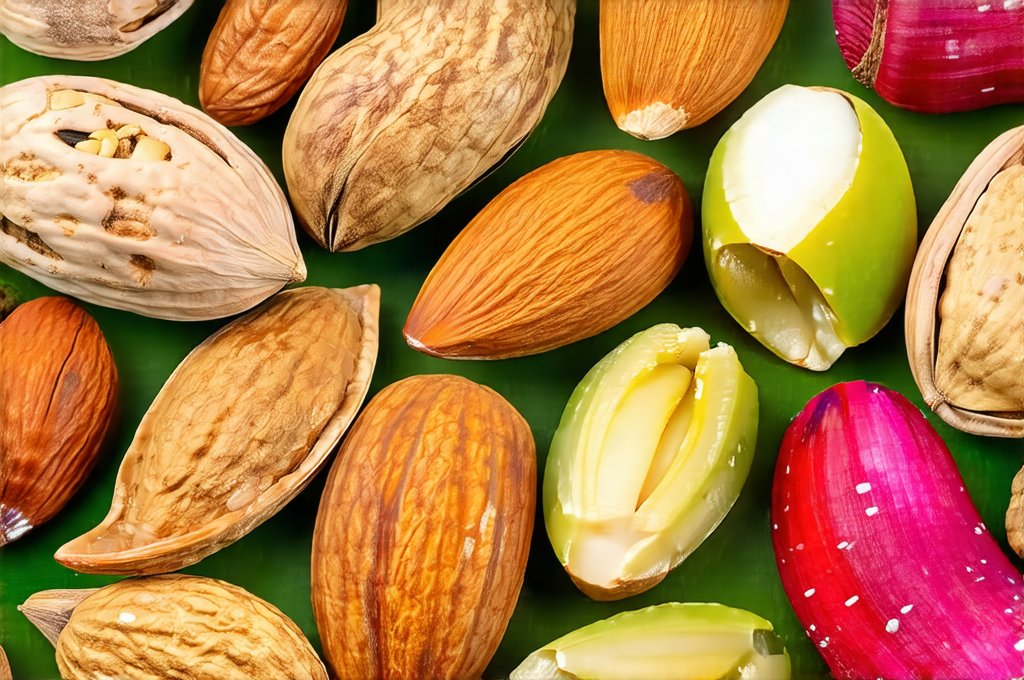Many people experience bloating – that uncomfortable feeling of fullness, tightness, and even pain in the abdomen. Often, dietary choices play a significant role, and for some, seemingly healthy snacks like nuts and seeds can surprisingly contribute to this issue. This isn’t necessarily because these foods are bad; rather, it’s often related to individual sensitivities, fiber content, or how they interact with our gut microbiome. Identifying the right nuts and seeds – those that minimize bloating while still providing valuable nutrients – is key to enjoying a satisfying and comfortable snack.
The good news is that not all nuts and seeds are created equal when it comes to digestive distress. Some options are naturally easier on the stomach, boasting lower FODMAP levels (fermentable oligosaccharides, disaccharides, monosaccharides, and polyols – essentially sugars poorly absorbed by the small intestine) or containing specific compounds that aid digestion. Understanding which nuts and seeds fall into these categories allows for informed choices, enabling you to enjoy a nutritious snack without the unwanted side effects. This article will explore the best nuts and seeds for bloating-free snacking, providing practical guidance on selection, portion control, and potential preparation methods to further minimize digestive discomfort.
Navigating Nuts & Seeds: Understanding Bloat Triggers
Bloating from nuts and seeds often stems from a few key factors. Firstly, fiber, while generally beneficial, can cause gas and bloating in sensitive individuals if consumed in large quantities or without adequate hydration. Secondly, the presence of certain compounds like phytates – found in many plant-based foods including nuts and seeds – can interfere with nutrient absorption and potentially contribute to digestive issues. Thirdly, individual sensitivities to specific types of fats or proteins within different nuts and seeds play a role. For example, someone might tolerate almonds well but experience bloating after eating cashews.
Another important consideration is the form in which you consume these foods. Raw nuts and seeds can sometimes be harder to digest than roasted versions (though excessive roasting can diminish nutritional value). Soaking nuts and seeds before consuming them is a fantastic way to reduce phytate content, making them easier on the digestive system. Finally, portion size is crucial – even well-tolerated nuts and seeds can cause bloating if eaten in excess. A small handful is usually sufficient for a satisfying snack without triggering discomfort.
Choosing Your Bloat-Friendly Options
When selecting nuts and seeds for minimal bloating, certain choices consistently stand out. Walnuts are often well-tolerated due to their lower FODMAP content and the presence of omega-3 fatty acids, which have anti-inflammatory properties that can support gut health. Macadamia nuts, with their higher fat content and relatively low fiber levels, are another excellent option for those prone to bloating – just remember portion control! Pecans fall into a similar category, offering delicious flavor and minimal digestive distress when consumed in moderation.
Seeds offer equally beneficial choices. Chia seeds and flaxseeds, while high in fiber, can be easily digested when properly hydrated (added to smoothies or soaked in water). The soluble fiber they contain also supports gut health by promoting the growth of beneficial bacteria. Pumpkin seeds are a good source of magnesium, which is known to relax intestinal muscles and reduce bloating. Sunflower seeds are generally well-tolerated but should be consumed in moderation due to their higher polyunsaturated fat content. Remember to prioritize quality – opt for unsalted, unroasted varieties whenever possible. Consider pairing your snack with gut safe snacks for a truly supportive approach.
Soaking Nuts & Seeds: A Digestive Aid
Soaking nuts and seeds is a simple yet powerful technique to enhance digestibility and minimize bloating. The process helps break down phytates, making nutrients more bioavailable and reducing digestive strain. Here’s how to do it:
- Place the desired amount of nuts or seeds in a bowl.
- Cover them completely with filtered water, adding a pinch of sea salt (this further aids in phytate breakdown).
- Soak for at least 4-8 hours, or ideally overnight. For smaller seeds like chia and flax, soaking time can be shorter (around 30 minutes to an hour).
- Drain the water and rinse thoroughly before consuming. You can then enjoy them as is, add them to smoothies, or use them in recipes.
Drying after soaking is also recommended for longer-term storage or if you prefer a crispier texture – spread them out on a baking sheet and dehydrate in a low oven (around 170°F) or in a food dehydrator until completely dry. This process restores some of the crunchiness lost during soaking. Proper digestion can be further supported by understanding the best time to take probiotics.
Portion Control & Mindful Eating
Even the most bloat-friendly nuts and seeds can cause discomfort if consumed excessively. Portion control is paramount – aim for roughly ¼ cup (about a handful) per serving. Pay attention to your body’s signals and adjust accordingly. If you notice any bloating, reduce the amount you’re consuming or try a different variety.
Mindful eating practices also play a crucial role. Avoid rushing through your snack; instead, savor each bite and chew thoroughly. This aids digestion and gives your body time to register fullness, preventing overeating. Combining nuts & seeds with other foods can also help – pairing them with a source of protein or healthy fat slows down digestion and reduces the likelihood of rapid fermentation in the gut. You may even want to consider best cooking oils for preparing your snacks!
Identifying Personal Triggers
Ultimately, finding the best nuts and seeds for bloating-free snacking is a personal journey. What works well for one person may not work for another. Keeping a food diary can be incredibly helpful in identifying specific triggers. Note which nuts and seeds cause you discomfort, as well as any other factors that might contribute to bloating (stress levels, hydration status, etc.).
Consider an elimination diet, where you temporarily remove potentially problematic foods from your diet and then reintroduce them one at a time to observe your body’s response. If you suspect a more serious underlying issue, consult with a registered dietitian or healthcare professional for personalized guidance and support. Remember that listening to your body is the most important step in achieving digestive comfort and enjoying nutritious snacks without worry. Additionally, exploring fermented vegetables could help diversify your microbiome for better gut health. And don’t forget to follow best practices for probiotic supplements.


















